By: debbie lynn elias
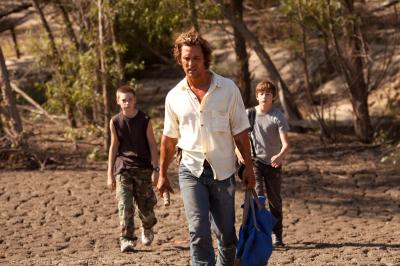
Matthew McConaughey continues his 2012 command of the big screen with 2013’s first McConaughey film – MUD. But shining even more brightly than McConaughey is young Tye Sheridan whose observant wide-eyed wonder and youthful exuberance captivate and compel, at times, even making you forget McConaughey is even there. Written and directed by Jeff Nichols, MUD is a romance from the male perspective; a movie about heartbreak, heartbreak as a 14 year old with his first crush, heartbreak as an adult who can’t seem to let go of his first love or, as Nichols himself describes it, “… falling head over heels for a girl and getting your heart broken and how palpable that is.”
Told through the eyes of 14 year old Ellis and his best friend Neckbone, it’s as if Tom Sawyer and Huck Finn have come to life and now live in the 21st century. With a small town, lost world, river life setting, Ellis and Neckbone are all about exploring and adventure and whatfs more exciting than heading for a forbidden island in the heart of the river. Ellis, always observant, and Neckbone, always eager and anxious yet cautious, are untouched by the adult problems of the world. They have a fresh wide-eyed wonder that is infectious, ebullient and takes one back to their own carefree days of youth. So how much fun is it to find a boat high up in a tree, a lasting memory of Hurricane Katrina, lay claim to it as their own private fort and then find out that a guy named Mud is already hiding there?

A consummate storyteller (and perhaps, fibber), Mud weaves a spell over the boys, especially Ellis, as he tells tales of hiding out, waiting to meet up with his true love, Juniper. Although Neckbone poo-poos love, Ellis is more than receptive as he has his own first love, May Pearl. But as the days pass, it seems that Mud has omitted a few details and it turns out that hefs running from the law and the grieving, angry father of a man he killed for showing interest in Juniper. Undeterred, the boys vow to help Mud leave the island, escape the law and reunite with Juniper.
Sadly, while Ellis and Neckbone are having the adventure of their lives with Mud, Ellis’ world is falling apart. His parents are splitting up. The government wants to take their houseboat and stop the ways of river life. His world is imploding, causing him to become disillusioned, forcing him to deal with things no young boy should have to. Making it even worse, May-Pearl breaks his heart while Juniper once again breaks Mud’s. But while women may cause them both pain, it’s the loyalty and friendship among the three, and a few surprise others, that pull them through the heartache.
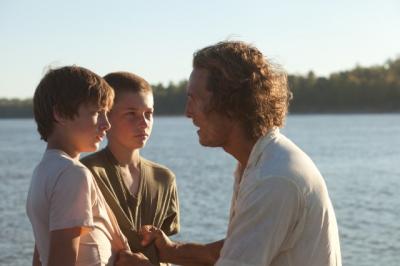
To paraphrase the Bard, this is the story, these are the characters, of which films are made on. A master class in storytelling and character development matched by the masterful performances of the actors.
While Matthew McConaughey is nothing short of brilliant as the title character, MUD, it is Tye Sheridan who delivers a tour de force performance as Ellis with Jacob Lofland not too far behind him as Neckbone. These young boys are “the real deal.” Genuine, honest, captivating and compelling. They steal your heart and leave you with a piece of theirs. Where Sheridan captivates with quiet observance, Lofland’s Jiminy Cricket pragmaticism is perfectly balanced. There is never a moment that you doubt their deep friendship and loyalty to each other. There is never a moment that you don’t doubt McConaughey’s MUD sees himself in them, which spawns its own threads of reflection. When awards season rolls around, don’t be surprised to see any or all three of these men – McConaughey, Sheridan and Lofland – picking up some hardware.
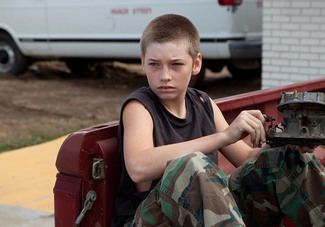
Important to note is that both Sheridan and Lofland were genuinely acting. They memorized lengthy dialogue. They executed emotion and hit marks. As opined by Nichols, ” I think so often to get truly honest performances out of kids what people typically do is they remove all the dialogue and they say, ‘Okay, we’re gonna just kinda let you speak. This is what’s going on but I’m not gonna give you lines to memorize because that gets pretty stilted pretty fast.'” But with Tye Sheridan and Jacob Lofland, “[T]his script was so specifically written that I knew that I had to have these kids say lines and say the lines that I wrote. You get a long way down that path by casting a kid whos very similar to the part but these kids ‘did’ this. They ingested this material, these lines, and they gave it back to us in an honest, believable way. That’s acting. It’s not some fluke of some kid showed up and we ran the camera at the right time and we caught an honest moment. It’s far too complex for that. I want everybody to know that ‘they did it’ – they did the movie. They said the lines. I think that makes it all the more extraordinary and their performances need to be known as such. It was them. It wasn’t me. They did that.”
Michael Shannon’s Galen serves to provide some very important telling dialogue serving as a prescient voice to the story. As Ellis’ parents, Senior and Mary Lee, Sarah Paulson and Ray McKinnon are the embodiment of the river life, those people. Joe Don Baker’s tacit evil speaks volumes thanks to angular camera angles that capture an imposing profile with an upturned skew, and shooting him in shadows of dark wood paneled hotel with an eerie yellow cast of a night table lamp. Sam Shepard is simply Sam Shepard. Rock solid, grounded and mysterious. Interestingly, Nichols “wrote that part for [Shannon]. I also wrote that part for Sam Shepard. I wrote that part for McConaughey. I wrote that part for Ray McKinnon. I like to do that. I like to write parts for people I don’t know and then hopefully I then befriend them and they‘ll say yes.”
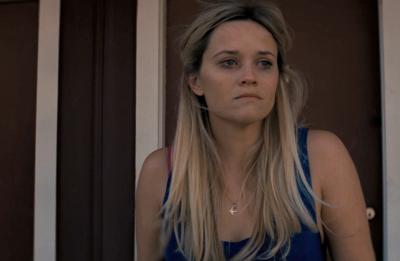
Strong are the performances of the females – Reese Witherspoon, Sarah Paulson and Bonnie Sturdivant. What sparks greater interest, however, is that we see the strength of each through the male perspective, through the eyes of Ellis. It’s thanks to this perspective, however, that each actress is allowed more unconstrained freedom with their physical and emotional notes, something of which each takes advantage with her respective performance.
Written and directed by Jeff Nichols, he puts “life” into MUD. From the heartache and heartbreak of love to the destruction of a way of life for the folk on the river, Nichols shines a light on a simpler but no less palpable life but does so through the eyes of 14 year old Ellis. What initially started as a “getaway film”, Nichols wanted a specific spin, a specific point of view. “There was a guy hiding out on an island in the middle of the Mississippi River and I was like, ’How can we distort that and work around that? Let’s tell it from the point of view of a 14 year old boy because how much more interesting is it to discover the man rather than be the man on the island.’ I started asking questions about who this boy was and what was going on in his life.” And thus, the world of Ellis was born. Nichols writes solidly and unwaveringly with the conviction of the tides. Adult roles are textured and rich with unspoken backstory and everyone has a resilience and strength that mirrors the river itself. There is an unspoken depth and history with every aspect of MUD, especially with Ellis who has an observant wisdom beyond his young years.
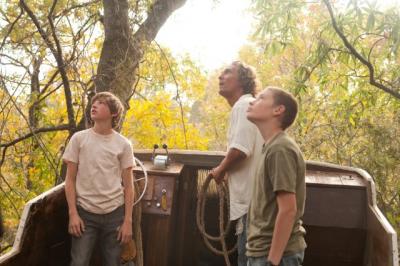
When it comes to describing the visual palette, engrossing and enraptured is an understatement. Beautiful to look at, Nichols and his cinematographer Adam Stone capture the true essence of the slow, seductive and languid river world and the generational context and way of life of its residents. You feel the joy and adventure of childhood while never forgetting the foreboding and danger of what it can mean to be an adult in an ever-changing world. You savor every moment, every look, every nuance, every lap of the water on the shore or against the houseboat. The minuscule details are meticulously executed and incorporated as essential elements to the story and you feel the essence of life teeming all around. Nichols also brings a fluidity to the film. MUD has the ebb and flow of the river or, as he puts it, “to flow like childhood, to flow like adolescence and to flow like the river.”
Cinematography is so lush, pristine, capturing the beauty of nature and capitalizing on the sun, the trees, the sand and the reflective nature of the water. Much as what Ben Richardson did with Beasts of the Southern Wild, so does Adam Stone here, particularly with the metaphorically reflective nature of the water mirroring the self-reflection of the characters. So powerful is Stone’s work capturing the vibrancy of this living breathing organism of a river world that if I didn’t know for a fact going in that Ben Richardson was not the cinematographer, I would have thought this his work. Breathtaking. I fully anticipate Academy Award and/or Spirit Award nominations coming Stone’s way for his cinematography in MUD.
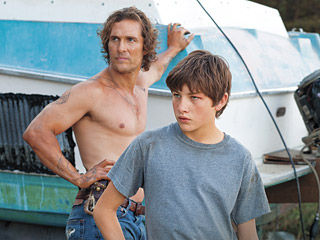
Complementing the ambient tone of the film is David Wingo‘s haunting soft scoring.
A quieter time, a simpler way of life, the romanticized memories of youth, the adventure and wide-eyed wonder of a world at your young feet, with MUD, Jeff Nichols proves the third time’s an even better charm (which is tough to do after Take Shelter). MUD is the shining star in Jeff Nichols’ triple crown of films.
Written and Directed by Jeff Nichols
Cast: Matthew McConaughey, Tye Sheridan, Jacob Lofland, Reese Witherspoon, Sam Shepard, Ray McKinnon, Joe Don Baker, Michael Shannon, Sarah Paulson












